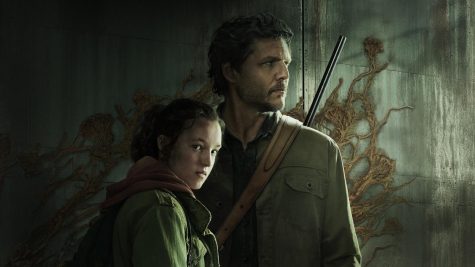Don’t Call Them Young Adult Books
If you had to ask me what book I think every high schooler should read was, I wouldn’t even have to stop to think about it: The Catcher in the Rye. It has everything; a complex, morally ambiguous anti-hero struggling to find people to trust in a harsh world. Holden Caulfield is an amazing character, one who displays all the confusion and struggles that come with young adulthood. It is a book I think everyone can relate to, and I think it should be mandatory reading for everyone going through Verona High School.
And yet, if you walked into any bookstore, headed toward the “Young Adult Section,” and went looking for the novel “The Catcher in the Rye,” you wouldn’t find it. No, it’s not because the bookstore is some grand disgrace in not having one of the great American novels; the book has merely been placed in a different section- general fiction or classics, usually.
How is that possible? This book, one of the greatest ever written, one many consider to be the ultimate bildungsroman, with perhaps the most famous teenage protagonist in all of literature- how is it possible that it doesn’t have a place in the young adult section?
And here’s where my problem with young adult books begins: young adult books are books FOR teenagers, specifically written for an adolescent audience.
Catcher in the Rye isn’t written FOR anyone; sure, teenagers tend to empathize more with the protagonist and the conflict he faces, but one never gets the feeling Salinger is writing with a teenage audience in mind. He wrote for everyone; teenagers just happened to enjoy it the most. And, make no mistake, you can be an adult and still love the book.
Modern “young adult fiction,” on the other hand, is clearly written with a specific audience in mind. The protagonists are always young. They use the most modern technology, speak in the most up-to-date slang. They deal with social cliques and drama. They usually have some heart-wrenching love story that would make Romeo and Juliet throw up from its melodrama.
Why does this genre exist? Why do we divide the world of literature into three ages: children, young adults, and adults? It’s not that the material in a young adult book is more appropriate in any way; indeed, they are often more likely to include sex, drugs, and alcohol then your typical “adult” book. Why is it that we decided that teenagers need their own section in the bookstore, just to pander to their needs? After all, it’s not like any other age group really has this kind of bias. There’s no section in the bookstore devoted to “retiree fiction.”
It appears to me that this entire genre of books is nothing more than a marketing scam, designed to tap into the social anxiety teenagers so often feel. Young adults want to feel like they belong, like someone “gets” them, and by giving them young protagonists in high school, struggling with parents, crushes, and fitting in, publishers hope to cash in on this desire for understanding.
What’s the problem with this? Well, first of all, these books rarely have anything meaningful to say. The relationships are often silly and dramatic, the problems ridiculous, and the character’s reactions aren’t genuine. The authors are more concerned with provoking a catharsis than actually saying anything.
But the larger problem is that “young adult” fiction robs readers of one of the most important byproducts of reading: empathy. It is extremely important to read books about people of different ages, just like it’s important to read books about people of different race, gender, and sexuality. If you only read about people who are facing your own problems, about teenagers complaining about how their crush doesn’t like them back and their parents are boring, then you’re limiting yourself.
We should have more faith that teenagers would be able to read and empathize with people who they have nothing in common with, the same way adults can read Catcher in the Rye and understand what Holden is feeling. Instead of focusing on writing something that teenagers will feel “understands” them, authors should focus on writing the books they want to write. All of this: the catharsis, empathy, and sense of belonging, will come naturally.
The best way to “get” teenagers is not by this cheap pandering, but instead by writing legitimately engaging fiction with characters that people of all ages can relate to. Putting all teenagers in a specific genre is just a phony attempt to make money off the struggles of adolescence, something Holden Caulfield would find repulsive.










